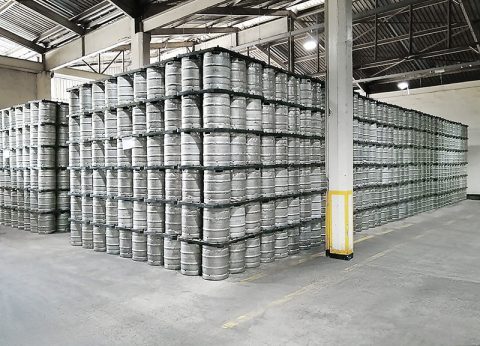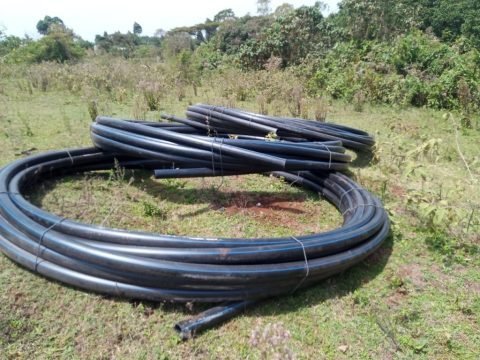International conferences in Canada bring people together from around the world to share ideas and talk about important topics. These events cover many fields like business, science, technology, and more. You might be wondering how to find upcoming international conferences in Canada?
Find upcoming international conferences in Canada by using search engines and checking event listing sites like Eventbrite. You can also follow social media pages and visit official conference websites such as Global Conference Alliance Inc. For academic events, you can use apps or check university pages.
If this is something you want to learn more about, then you’re in the right place. This article includes everything you need to know—from search tips and legitimate websites to newsletters and useful apps. Keep reading to explore all the simple ways to stay updated.
How to Find Upcoming International Conferences in Canada?
There are thousands of conferences held in different parts of the world. These events help people share ideas, learn new things, and meet others. Many websites and platforms can help you discover what’s coming next. If you’re trying to figure out where to look, check below.
Online Search
Most people begin by typing simple questions into Google. It’s a fast way to check what’s coming soon in different cities or countries. Try to use keywords like “tech conferences in Canada” or “business events near me.” After doing that, you’ll probably come across different sites. These websites list upcoming conferences in one place, which makes things easier to follow.
Conference Listing Sites
You might find sites that collect different event details in one place. These are made to help people find and compare events easily. They show things like location, topic, ticket price, and event link. Some focus only on one topic, like medicine or education. If you’re searching for something very specific, these sites are super helpful and easy to use.
Social Media Pages
Many big conferences post details directly on platforms like Facebook, LinkedIn, or Instagram. You’ll often see countdowns, location details, and how to join. If you follow organizers or topics you care about, their event updates will appear in your feed. This way, you don’t even have to go looking; they show up right there. Some profiles also let you ask questions or chat about events before they start.
Official Event Websites
Some conferences have their own official pages. You’ll find everything from past videos to exact schedules. These websites often include how much it costs, where it’s being held, and how to register. If you like being sure about the source, this is the best place to check. They also give updates if any changes happen, so you don’t miss anything important before the event begins.
Event Apps
Mobile apps have made it easier to track events without always searching online. You can download apps like Eventbrite, Whova, or Meetup. These apps are simple to use and let you set reminders. You can also find events by category or city. Most of them give alerts for new events based on what you liked before, which helps you stay updated without effort.
University and College Sites
Some conferences are organized by colleges or research centers. These websites often post events with topics related to education, science, and global issues. Even if you’re not part of that school, you can still attend most events. These listings are normally in their “News” or “Events” section. Checking those pages regularly helps you stay informed about what’s happening around you or even in other countries.
Newsletters
If you subscribe to emails from event websites, they’ll send regular updates. These newsletters include names, locations, deadlines, and sometimes early bird discounts. You won’t need to search every day because the details will come directly to your inbox. Some emails even recommend events based on what you’ve clicked before. This is a great way to stay in the loop with very little effort.
Word of Mouth
Sometimes the best tips come from people you already know. Friends, teachers, or colleagues might mention events they’re planning to attend. Hearing it from someone you trust can help you decide quicker. You also get to ask follow-up questions. This way, you hear what the event is like before you register, which can save time and make it more fun to go.
Finding events is easier when you know the right places to check. Try different methods to see which one works best for you. Ask others, explore online, and use tools that feel simple and helpful. Keep searching and stay curious—it’s a great way to learn something new.
Simple Google Tricks to Search Canadian International Conferences
Finding Canadian international conferences online can be easier than it seems. You just need to know the right way to search for them. Some simple tricks on Google can save a lot of time. If you want to learn those smart tricks, keep reading below.
Use Exact Phrases
Typing your search words inside quotation marks gives better results. It tells Google to find only the pages with that full line. This helps you skip random or useless websites that don’t match. For example, “Tech Conference in Toronto 2025” works well. You’ll quickly find events that are real and official. Using quotes helps Google show only close matches. Try this when searching for something specific and clear.
Add the Year
Adding the year to your search makes things more current. If you want events for 2025, just include “2025” in the search line. You’ll stop seeing old events from past years that no longer matter. Google will show only what’s current or coming soon. This works well for getting the newest results. It’s a small trick that brings big help when searching for conferences.
Look for Official Sites
Always check the link before you click to open it. Real conferences often use .org, .edu, or .ca websites. These sites usually have full event plans, speaker names, and contact info. If the page looks basic or strange, it may not be real. Official websites give you more trust and details in one place. It’s the best way to avoid fake or unclear event listings online.
Use City Names
Writing the name of a city helps you find nearby events fast. Try searching things like “Vancouver health conference 2025” or “Toronto business event 2025.” This tells Google to show events based on that location. It helps you skip listings in other cities you don’t want. Adding a city is a good way to find things close by. It saves you time and keeps your search focused.
Try Google News
Going to the Google News tab gives you the latest updates. When you search for conferences, click “News” at the top. It shows new articles about upcoming events and updates. Some posts may even have links to official pages. This tool works best when you want the most recent news. It’s a good way to check if something big is happening again this year.
Using these tricks can make your search faster and more helpful. Always check the website before trusting any event you see online. Make sure the event details look real and clear to you. Try these steps next time you search for a conference in Canada.
Websites You Can Trust for Upcoming International Conferences in Canada
Finding trusted websites for international conferences in Canada can save you time. Some websites always share real and useful event updates. You don’t need to search everywhere when you know where to look. Check below to see the websites that actually help.

Global Conference Alliance Inc.
This site is one of the most trusted places for conference news. It shares all upcoming events clearly with dates, topics, and city names. You can find business, tech, healthcare, and marketing events in one spot. They also provide clear contact info and easy registration links. Many people rely on this platform for real and current conference details. It’s a helpful choice if you want to attend events in Canada.
Eventbrite Canada
For conferences as well as other events, Eventbrite is a popular choice. Just type “Canada international conference” in the search bar. It gives a full list of upcoming conferences with time, place, and ticket info. Some events also offer free registration. You can use filters to choose the topic or location you want. Event pages are clear, and the signup steps are simple and safe.
10Times
Another reliable website that reports on world events, including those in Canada, is 10Times. You can explore by topic, city, or month using its easy filters. The website lists top-rated events with links to the original organizers. It includes ratings and reviews that help you decide quickly. You’ll find real information and official websites for each listing. It’s a great place to compare events in one view.
IEEE Conference Search
If you’re looking for science and technology conferences, IEEE is a reliable choice. They only list conferences that follow their standards and guidelines. The Canadian events are well-organized with full dates and registration info. You can also check the host organizations and past event history. It’s best for people interested in research, tech, or engineering fields. Everything you need to know is clear and easy to understand.
Meetup
The Meetup platform allows people to connect through local events. Many international conference organizers post their events here to reach new audiences. You can search by location, topic, or date to find what fits you best. Just type in “Canada conference” and you’ll find great results. It’s also helpful to join related groups to get regular updates.
These websites can help you find real conferences without any guesswork. Always double-check the event page before signing up for anything. Make sure the details match and the site looks official. Use these trusted sites for your next conference search in Canada.
How to Know if a Conference Listing Site is Legit?
Many people search for conferences online but don’t always know which sites to trust. Some websites may look real but share wrong or fake event details. It’s important to know what signs to look for before clicking or signing up. Keep reading to learn how you can tell if a site is real or not.
- Always check if the website has full contact details, including an address and a working email.
- Real sites usually link to social media pages or other trusted organizations or partners.
- Look for spelling mistakes or broken pages, as most fake sites do not pay attention to small things.
- A good site should show event topics, speakers, schedules, and clear dates for each conference.
- Most trusted pages use HTTPS at the start of the website link to keep things safe.
- Try searching the event name on Google to see if other websites also talk about it.
- You can look for reviews or news articles that mention the event or the site.
- A real site will let you contact the team and get answers quickly and clearly.
- Watch out if the site only asks for money and shares no real event details.
- If everything feels too rushed or unclear, it’s better to skip and find another site.
These tips can help you feel more sure while searching online. Not every site is fake, but some do hide the truth well. Taking a little time to check can stop big problems later. Always be careful and trust websites that look clear and real.
Newsletters to Follow for Canadian International Conference Updates
Many people like to stay updated about upcoming conferences in Canada, but it’s not always easy to know where to look. Newsletters can really help by giving regular updates straight to your inbox. They often share fresh details before they’re posted anywhere else. If you’re curious about where to find such updates, here’s a list to discover the best options out there.
| Newsletter/Organization | Focus Area |
| Canadian International Council (CIC) | Canadian foreign policy, international affairs, and public events |
| International Conference Alerts | General academic and professional conferences in Canada |
| The Canadian Institute | Sector-specific events: finance, law, healthcare, etc. |
| International Council for Canadian Studies (ICCS) | Canadian studies, international education, scholarly events |
| Canadian Urban Institute (CUI) | Urban development, planning, and policy discussions |
| Canadian Climate Institute | Climate policy, environment, and sustainability |
| CIFAR (Canadian Institute for Advanced Research) | Advanced research: AI, health, environment, interdisciplinary fields |
| Canadian Science Policy Centre (CSPC) | Science policy, innovation, public engagement |
Newsletters are one of the easiest ways to keep up with conference updates in Canada. From academic institutions to official organizers, each source brings its own style and information. Try a few and see which one helps you most. You might end up finding an event that really interests you.
Last Word
There are many ways to stay informed about global events, and now you’ve seen the best options for discovering real and useful conference updates. From websites and apps to social media and newsletters, you now know how to find upcoming international conferences in Canada with less confusion and more confidence.
Before you register, double-check the source, look for full event details, and stay alert for any signs of fake listings. Use smart tools, follow trusted pages, and sign up for helpful alerts. We hope you find great conferences ahead, good luck, and happy exploring!






